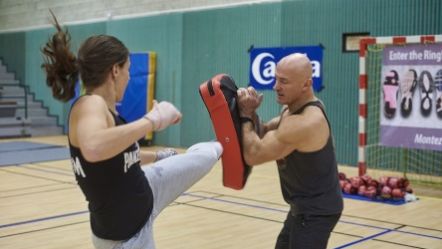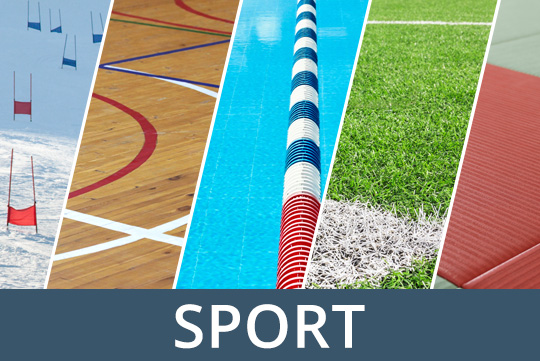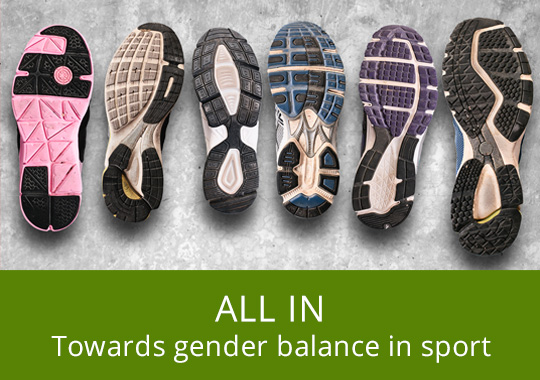Gender equality and gender mainstreaming

Today, inequalities still persist in sport, encompassing a variety of areas like: access to sport, education and physical activities; participation at the governing and decision-making bodies; access to resources, to remuneration, to financial incentives and sports facilities; media representation of female athletes and women’s sport; gender-based violence, including harassment and abuse.
For many years, the Enlarged Partial Agreement on Sport (EPAS) of the Council of Europe has addressed this problem with a view to obtaining equality between women and men in sport. It kickstarted its activities on this subject with an annual conference in London on 15-18 September 2011.
Among the most important achievements, we can highlight:
 The good practice handbook: “Gender equality in sport. Women’s and girls’ access to sporting activities.”
The good practice handbook: “Gender equality in sport. Women’s and girls’ access to sporting activities.”
The first part of this handbook presents the existing situation on girls’ and women’s participation in sporting activities in Europe: their access, their obstacles and their activities. Good practices and successful experiences throughout Europe are gathered in a second part. As for the last part, it puts forward a set of recommendations, originating from the analysis of the good practices, whose purpose is to help practitioners and policy makers in pushing forward the fight for gender equality in sport.
 The Committee of Ministers’ recommendation to the member states on gender mainstreaming in sport (CM/Rec (2015) 2)
The Committee of Ministers’ recommendation to the member states on gender mainstreaming in sport (CM/Rec (2015) 2)
This recommendation works on the assumption that in order to rectify the structural nature of inequality between women and men in sport, it is necessary not only to adopt positive measures but also a gender mainstreaming strategy engaging all the institutions and actors involved in its implementation. In this way, it encourages member states to review their legislation in order to include gender mainstreaming in the policies and sport public programs and sports education.
 A seminar on the implementation of gender mainstreaming in sport (co-organised by EPAS and European Women and Sport (EWS)) on the 17 November 2015
A seminar on the implementation of gender mainstreaming in sport (co-organised by EPAS and European Women and Sport (EWS)) on the 17 November 2015
The public authorities’ and sport organisations’ representatives present at this seminar were able to benefit from useful guidance in order to implement policies on gender mainstreaming in sport.
 Two joint projects (European Union/Council of Europe): “Balance in sport. Tools to implement gender equality” (2016) and "ALL IN – Towards gender balance in sport" (2018-2019)
Two joint projects (European Union/Council of Europe): “Balance in sport. Tools to implement gender equality” (2016) and "ALL IN – Towards gender balance in sport" (2018-2019)
"Balance in Sport", implemented in partnership with a range of partners (Ministries in charge of sport, sport organisations, European Union agencies, networks, etc.) set out to identify and test common indicators to measure the equality between women and men in sport. Different dimensions were studied: access to positions of greater responsibility; training; practice of a sport activity; (from grassroots sport to elite sport), media representation of female athletes and women’s sport, as well as gender-based violence. A pilot data collection campaign was carried out in Spain, Finland, France and Romania in order to collect information on gender equality in sport in Europe based on a common methodology.
This is being followed by a 2nd joint project "ALL IN – Towards gender balance in sport" which aims at implementing a broad data collection campaign on gender equality in sport based on a set of generally agreed indicators in five strategic fields (leadership, coaching, participation, media / communication and gender-based violence), and producing concrete tools to help public authorities and sport organisations when developing policies and strategic actions aimed at tackling gender inequalities in sport, and adopting a gender mainstreaming approach. 18 countries took part in the data collection process, and the results can be found here.
Link to the Council of Europe's Gender Equality website
 Conference: Breaking the cycle of inequality in sport (Zagreb, 25 October 2018)
Conference: Breaking the cycle of inequality in sport (Zagreb, 25 October 2018)
A conference entitled “Breaking the cycle of inequality in sport - by fixing gender balance in leadership and preventing violence against women” was held in Zagreb on 25 October 2018, organised by the Enlarged Partial Agreement on Sport, under the Croatian Chairmanship of the Committee of Ministers of the Council of Europe. This conference addressed research evidence and policy responses in order to increase women’s leadership and to eliminate all forms of violence against women in sport.




